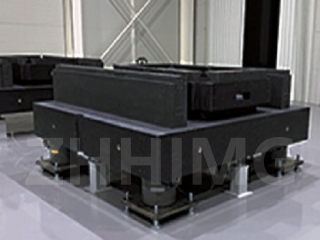Granite, a natural igneous rock composed primarily of quartz, feldspar and mica, plays a vital but often overlooked role in the production of high-precision lenses. Granite's unique properties make it an ideal material for a variety of applications in the optical industry, especially for the manufacture of high-quality lenses for cameras, microscopes and telescopes.
One of granite's main advantages is its exceptional stability. When crafting high-precision lenses, maintaining a consistent and stable surface is essential to ensure optical clarity and accuracy. Granite's low coefficient of thermal expansion means it will not bend or deform with temperature fluctuations, making it an ideal base material for lens grinding and polishing equipment. This stability allows manufacturers to achieve the precise tolerances required for high-performance optical components.
Granite’s hardness also makes it important in lens production. The material can withstand the rigorous grinding and polishing processes required to create the smooth, flawless surfaces required for high-precision lenses. Unlike softer materials, granite does not easily wear, ensuring that the tools used in lens production will maintain their effectiveness over time. This durability saves manufacturers money because they can rely on granite equipment for a long time without having to replace it frequently.
Additionally, granite’s natural beauty and variety of colors can enhance the aesthetic appeal of optical devices. While functionality is critical, the visual impact of high-precision lenses and their housings can also influence consumer choices. Using granite in these applications not only provides a strong and reliable foundation, but also adds an element of elegance.
In summary, granite’s unique properties (stability, hardness, and aesthetics) make it a valuable material for the production of high-precision lenses. As demand for advanced optical technology continues to grow, granite’s role in the industry is likely to become even more important, ensuring that manufacturers can meet the stringent standards required for high-quality optical performance.
Post time: Jan-13-2025

